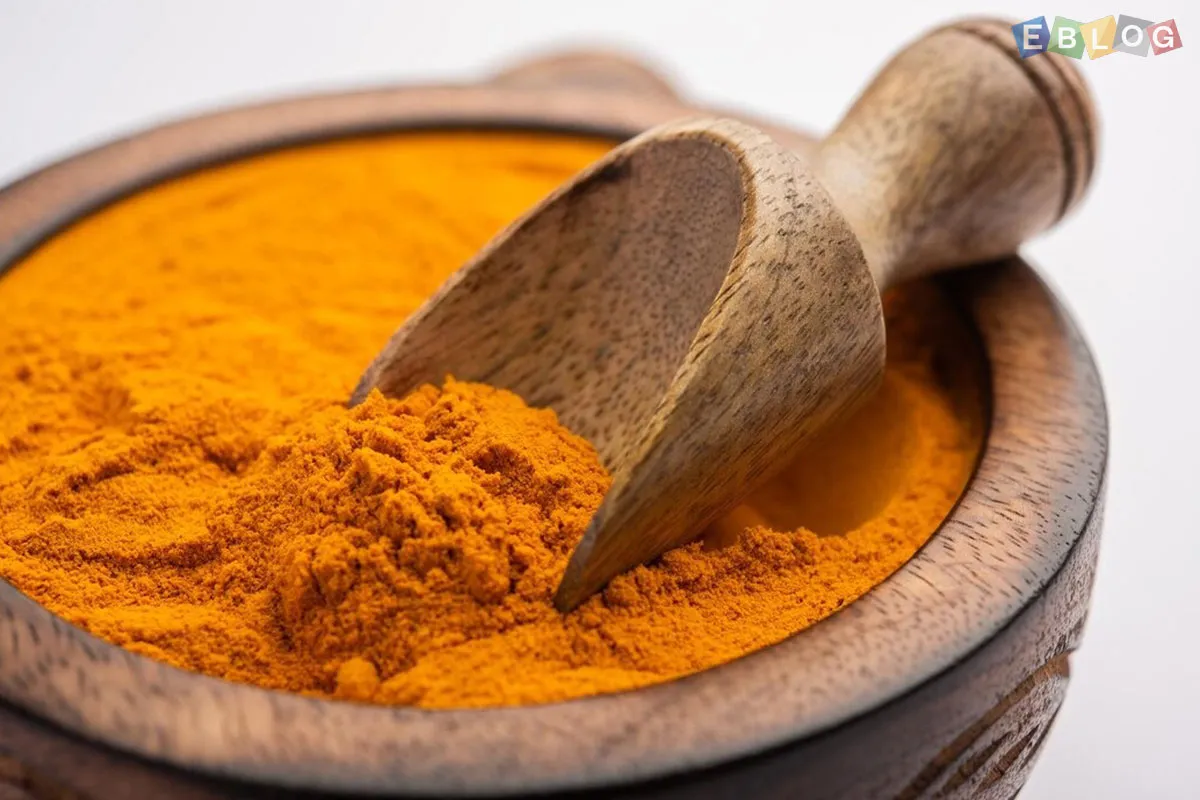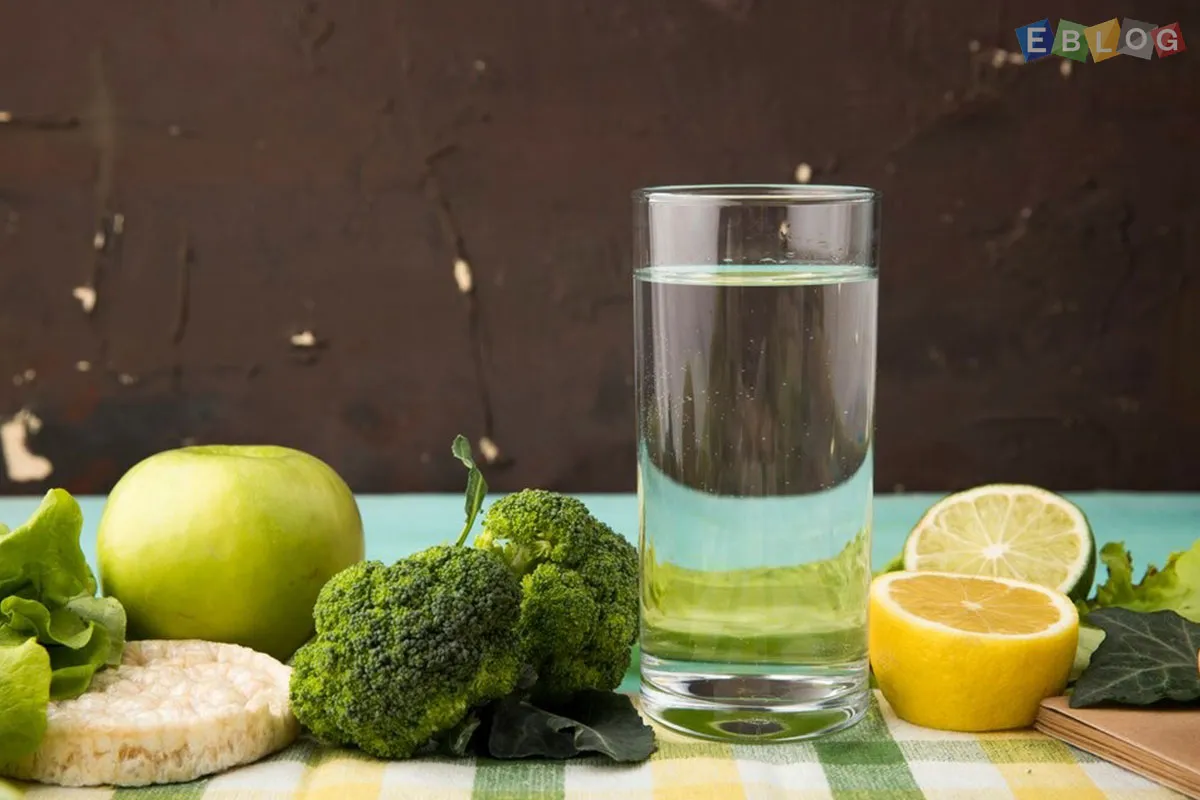
Turmeric: The Golden Spice of Health - Healing properties of turmeric
- 15 Feb, 2025
- Food
- 579 Views
- 0 Comments
Turmeric, often referred to as the “golden spice,” is not only a staple in kitchens worldwide but also a powerful herb with a rich history of use in traditional medicine. Known for its vibrant yellow color and warm, earthy flavor, turmeric’s popularity extends beyond culinary uses, as it has long been revered for its healing properties. With many health benefits, turmeric is considered a potent natural remedy. In this blog, we explore the remarkable healing properties of turmeric and how it contributes to overall health and wellness.
1. The Power of Curcumin: The Active Compound in Turmeric
The secret behind turmeric’s impressive health benefits lies in its active compound, curcumin. Curcumin is a bioactive substance that has powerful antioxidant, anti-inflammatory, and anti-microbial properties. It is this compound that gives turmeric its characteristic yellow color and makes it an essential ingredient in traditional healing systems like Ayurveda and Traditional Chinese Medicine.
Curcumin is known for its ability to combat inflammation in the body, making it an effective remedy for a wide range of chronic conditions that stem from inflammation, including arthritis, heart disease, and certain forms of cancer.
2. Anti-Inflammatory Properties
One of the most well-known health benefits of turmeric is its anti-inflammatory effect. Chronic inflammation is at the root of many health conditions such as arthritis, heart disease, and even Alzheimer’s. Curcumin helps to block the molecules that cause inflammation, reducing swelling and discomfort.
Studies have shown that turmeric can be as effective as some anti-inflammatory drugs but without the harmful side effects. Whether it’s osteoarthritis or rheumatoid arthritis, turmeric has been found to relieve joint pain, reduce inflammation, and improve mobility, offering a natural solution for those seeking relief from joint-related ailments.
3. Antioxidant Benefits
Oxidative stress occurs when there is an imbalance between free radicals and antioxidants in the body. Free radicals can damage cells, leading to aging and various diseases, including cancer and heart disease. Curcumin in turmeric is a potent antioxidant that neutralizes free radicals, protecting the body from oxidative damage.
By scavenging free radicals, turmeric also stimulates the body’s natural antioxidant defenses, providing long-term protection against the damaging effects of oxidative stress. Regular consumption of turmeric can help prevent premature aging, improve skin health, and reduce the risk of chronic diseases.
4. Supports Brain Health
Turmeric is known to have a neuroprotective effect, meaning it helps protect the brain from damage and promotes cognitive function. Curcumin has been found to increase levels of brain-derived neurotrophic factor (BDNF), a protein that plays a vital role in the growth and maintenance of brain cells. Low levels of BDNF have been linked to various neurodegenerative conditions, including Alzheimer’s disease.
Turmeric's ability to cross the blood-brain barrier allows it to exert its protective effects on the brain. Studies suggest that curcumin may help prevent or delay the onset of Alzheimer's and improve memory and cognitive function in older adults.
5. Boosts Immunity
Turmeric has long been used to boost the immune system and fight off infections. Its antimicrobial properties make it an excellent natural remedy for colds, coughs, and sore throats. The compound curcumin has been shown to enhance the immune system’s ability to fight infections by increasing the activity of immune cells, such as T cells and macrophages.
Turmeric’s role in maintaining a healthy immune response also extends to its ability to regulate the gut microbiome. Since the gut plays a critical role in immune function, turmeric’s positive effects on digestive health can help strengthen the body’s defenses against pathogens and harmful bacteria.
6. Aids Digestion
Turmeric has been traditionally used to aid digestion and support a healthy gut. It stimulates the production of bile, which helps break down fats and improves the digestion process. Curcumin has also been shown to reduce symptoms of irritable bowel syndrome (IBS), inflammatory bowel disease (IBD), and other digestive disorders by reducing inflammation in the gut lining.
In addition to its digestive benefits, turmeric can help alleviate bloating, gas, and indigestion. For many, incorporating turmeric into their daily diet can lead to better digestion, enhanced gut health, and overall well-being.
7. Supports Heart Health
Heart disease is the leading cause of death globally, but turmeric may play a role in protecting the heart. Curcumin has been shown to help lower cholesterol levels, reduce high blood pressure, and improve blood vessel function, all of which contribute to better cardiovascular health. By reducing inflammation and oxidative stress, turmeric may also help prevent plaque buildup in the arteries, reducing the risk of atherosclerosis.
Moreover, turmeric can help improve endothelial function, which is crucial for regulating blood flow and maintaining the health of blood vessels. This makes turmeric an important part of a heart-healthy diet.
8. Potential Anti-Cancer Effects
Research has shown that turmeric and curcumin have potential anti-cancer properties. Curcumin has been found to inhibit the growth of cancer cells and prevent the spread of tumors in various types of cancers, including breast, colon, and prostate cancer. It works by interfering with the molecular pathways that are involved in cancer cell growth and metastasis.
While more research is needed, turmeric’s antioxidant and anti-inflammatory properties make it a promising natural remedy in cancer prevention. Including turmeric in your diet may help lower the risk of certain cancers and improve overall cellular health.
9. Mood-Boosting and Anti-Depressive Effects
Turmeric’s mood-enhancing benefits are gaining attention, particularly its potential to alleviate symptoms of depression. Some studies suggest that curcumin may increase levels of serotonin and dopamine, two neurotransmitters that play a key role in mood regulation. As effective as some prescription antidepressants, turmeric may provide a natural alternative for those struggling with mild to moderate depression.
Its ability to reduce inflammation and oxidative stress in the brain may also contribute to its mood-boosting effects, making turmeric a potential ally for mental health and emotional well-being.
10. How to Incorporate Turmeric into Your Diet
There are several easy ways to include turmeric in your daily diet:
a. Golden Milk: A warm beverage made with turmeric, milk (or dairy-free alternatives), and spices like cinnamon and black pepper.
b. Turmeric Tea: Simply brew turmeric with hot water and add honey, lemon, or ginger for extra flavor.
c. Smoothies: Add a teaspoon of turmeric powder to your favorite smoothie for an antioxidant boost.
d. Curries and Soups: Turmeric is commonly used in curries and soups, infusing dishes with flavor and health benefits.
e. Turmeric Supplements: For those looking for a more concentrated dose, turmeric supplements with curcumin extract are widely available.
11. Conclusion
Turmeric, the golden spice of health, has been revered for its powerful healing properties for thousands of years. From its anti-inflammatory effects to its potential in preventing chronic diseases, turmeric offers a wealth of health benefits that cannot be ignored. By incorporating this versatile spice into your diet, you can harness the power of curcumin to improve overall wellness and promote a healthier, more vibrant life. Whether consumed as a supplement, in food, or as a warm beverage, turmeric is undoubtedly one of nature’s most valuable gifts to human health.
So, why not start adding this golden spice to your meals today? Your body will thank you!















Leave a Reply